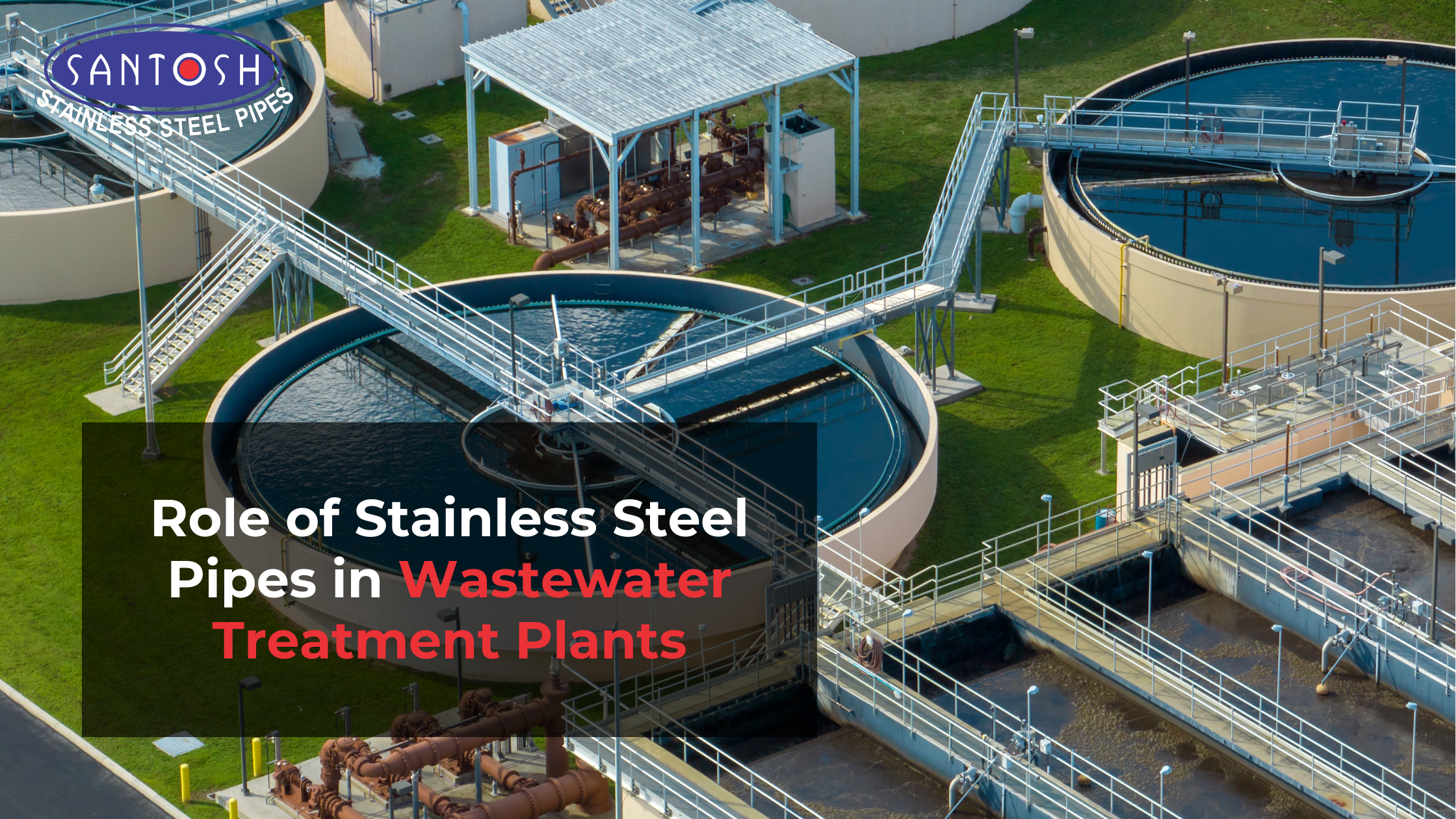
Wastewater treatment plants are essential for ensuring clean water supply and protecting the environment. These facilities process wastewater to make it safe for reuse or release. Among the many components in these systems, stainless steel pipes play a critical role. They are durable, resistant to harsh conditions, and prevent contamination, making them a preferred choice for wastewater treatment plants.
In this blog, we’ll explore the importance of stainless steel pipes, how they are used in wastewater treatment, and the benefits they provide to ensure efficient and safe operations.
First, let’s understand the basics of wastewater treatment plants.
How Does Wastewater Treatment Work?
Before diving into the role of stainless steel pipes, it’s important to understand how wastewater treatment works. The process typically involves several stages:
-
Collection and Transportation: Wastewater is collected from homes, industries, and businesses and transported to the treatment facility.
-
Primary Treatment: Solid waste is separated from liquid waste.
-
Secondary Treatment: Biological processes are used to break down organic matter.
-
Tertiary Treatment: Additional filtration and disinfection ensure water is safe for reuse or discharge.
Throughout these stages, pipes are essential for moving water, chemicals, and waste materials.
Why Stainless Steel Pipes Are Essential in Wastewater Treatment
Stainless steel pipes stand out as the best choice for wastewater treatment plants due to their unique properties:
1. Resistance to Corrosion
Wastewater contains chemicals, acids, and other corrosive substances. Regular pipes can rust or break down over time, causing leaks and contamination. Stainless steel, however, resists corrosion, ensuring long-lasting performance even in harsh conditions.
2. Hygienic and Non-Reactive Material
Stainless steel is a non-reactive material, which means it doesn’t leach harmful substances into the water. This is critical in preventing contamination, especially during the final stages of treatment when water is being purified for reuse.
3. Strength and Durability
Stainless steel pipes can handle high pressure, extreme temperatures, and heavy use without deforming or cracking. This durability makes them ideal for the demanding environments of wastewater plants.
4. Low Maintenance
Thanks to their corrosion resistance and durability, stainless steel pipes require minimal maintenance. This saves time and money for plant operators, ensuring efficient operations with fewer interruptions.
How Stainless Steel Pipes Are Used in Wastewater Treatment
Stainless steel pipes are utilized in various parts of the treatment process:
1. Transporting Wastewater
The journey of wastewater begins with its transportation to the treatment plant. Stainless steel pipes ensure safe and leak-proof movement of wastewater, minimizing the risk of contamination along the way.
2. Chemical Distribution
Chemicals play a vital role in neutralizing harmful substances and purifying water. Stainless steel pipes are used to distribute these chemicals safely and efficiently without reacting with them.
3. Aeration Systems
During the secondary treatment stage, oxygen is pumped into tanks to promote the growth of bacteria that break down organic waste. Stainless steel pipes deliver air reliably, ensuring the biological processes work effectively.
4. Sludge Handling
Solid waste, or sludge, is a byproduct of wastewater treatment. Stainless steel pipes are used to move sludge for further treatment, drying, or disposal, ensuring smooth operations.
Preventing Contamination: The Role of Stainless Steel Pipes
One of the most significant risks in wastewater treatment is contamination. Leaks or failures in the system can allow untreated water to mix with clean water or escape into the environment, causing serious health and environmental problems.
Stainless steel pipes minimize this risk in several ways:
-
Leakproof Design: Their precise manufacturing ensures tight seals and connections, preventing leaks.
-
Resistance to Wear: Stainless steel pipes don’t crack or degrade, even under high pressure or harsh conditions.
-
Hygienic Properties: Their smooth surface prevents bacteria and dirt buildup, maintaining the cleanliness of the water.
By preventing contamination, stainless steel pipes ensure that treated water is safe for reuse or discharge, protecting public health and the environment.
Benefits of Using Stainless Steel Pipes in Wastewater Plants
Stainless steel pipes offer several advantages that make them the preferred choice for wastewater treatment plants:
1. Longevity and Cost-Effectiveness
While stainless steel pipes may cost more upfront, their long lifespan and low maintenance requirements make them a cost-effective choice in the long run. They reduce the need for frequent replacements or repairs, saving money over time.
2. Sustainability
Stainless steel is 100% recyclable, making it an environmentally friendly option. Using stainless steel pipes aligns with the sustainability goals of modern wastewater treatment plants.
3. Versatility
From transporting wastewater to distributing chemicals and handling sludge, stainless steel pipes can be used in every stage of the treatment process. Their versatility makes them a universal solution for wastewater plants.
Why Choose Santosh Steel for Stainless Steel Pipes?
At Santosh Steel, we specialize in providing high-quality stainless steel pipes designed to meet the unique needs of wastewater treatment plants. Here’s why you should choose us:
-
Top-Quality Products: Our pipes are made from premium-grade stainless steel, ensuring superior performance.
-
Custom Solutions: We offer pipes in various sizes and specifications to suit your specific requirements.
-
Reliability: With years of experience, we are a trusted partner for industries across India.
Whether you need pipes for a new wastewater treatment plant or to upgrade your existing system, Santosh Steel has the right solutions for you.
Conclusion
Stainless steel pipes play a vital role in wastewater treatment plants, ensuring the safe and efficient movement of water, chemicals, and waste. Their corrosion resistance, durability, and ability to prevent contamination make them an essential component of these facilities.
Investing in stainless steel pipes not only improves the performance of wastewater plants but also supports sustainability by reducing maintenance and extending the lifespan of the system.
At Santosh Steel, we are committed to delivering high-quality stainless steel pipes that meet the demands of the wastewater treatment plants. Contact us today to learn how we can help with your project!